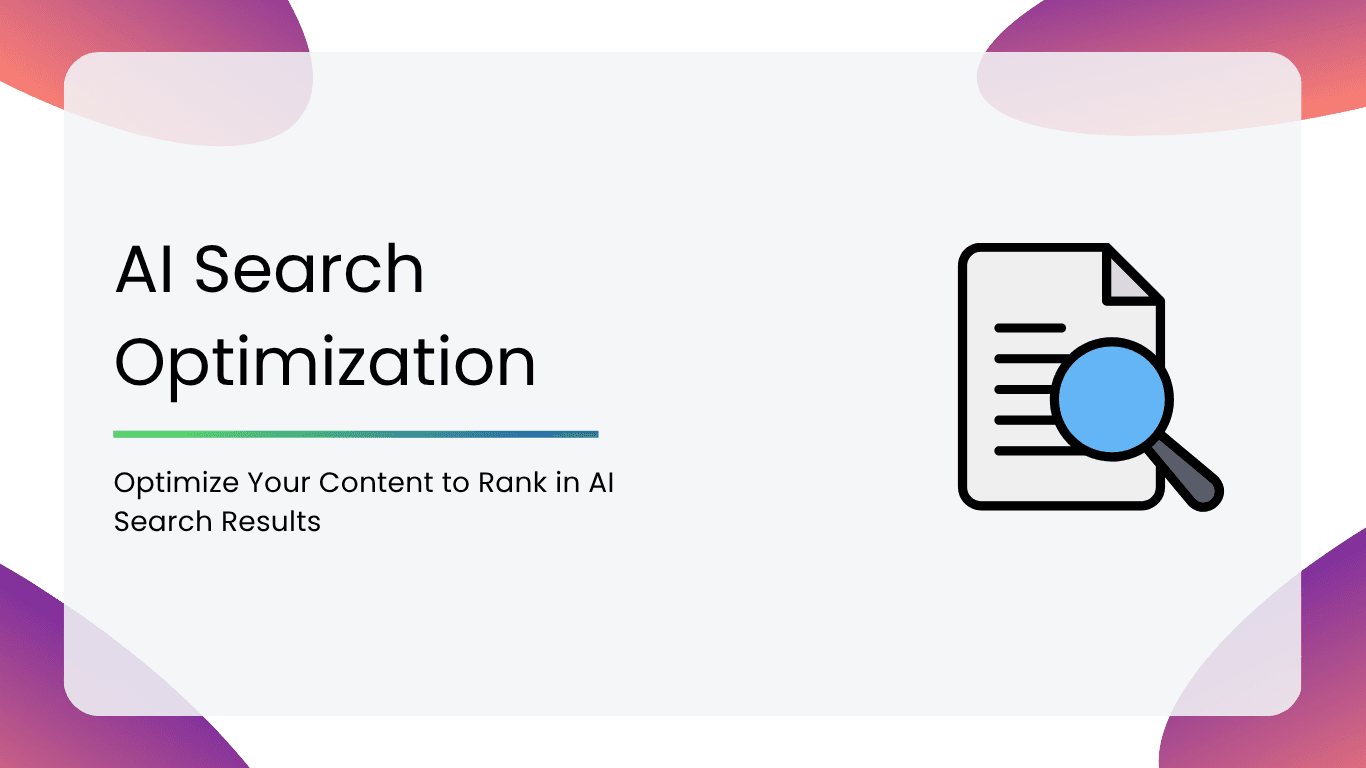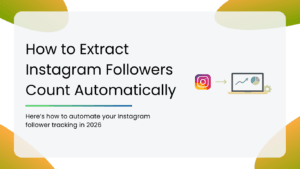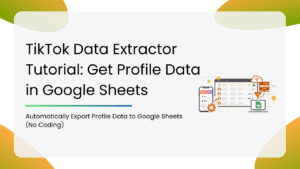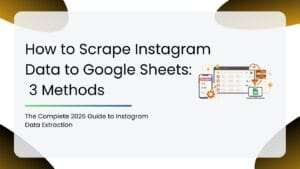AI is changing how we search and how we show up in search. With tools like ChatGPT, Gemini, and Perplexity gaining ground, traditional keyword-based SEO is no longer the only way. These AI-powered search engines don’t just pull links, they generate answers. That means if your content isn’t optimized for AI search, it’s missing out on a whole new kind of visibility.
So, how do you get your content featured in AI-generated responses? Let’s break it down.
What is AI Search Optimization?
AI Search Optimization involves using AI-powered tools to streamline and improve the SEO process. These tools help generate keyword-rich content, optimize structure and metadata, analyze user intent faster, making it easier for websites to rank higher and attract relevant traffic.
Traditional Search vs AI Search Optimization
| Aspect | Traditional Search Optimization | AI Search Optimization |
| Purpose | Optimize site for search engine crawlers | Uses AI to automate content creation, optimization |
| Who Uses It | Marketers, SEOs | Marketers, content creators |
| How It Works | Keyword-focused, link-optimized content | AI-assisted content with optimized structure |
| Main Goal | Increase organic traffic via SERPs | Improves quality and efficiency of SEO workflow |
| Content Output | Keyword-focused, link-optimized content | AI-assisted content with optimized structure |
| Ranking Mechanism | Based on Google’s algorithms and backlinks | Helps align with Google ranking factors |
| Traffic Flow | User clicks on links to visit websites | Optimized content gets discovered faster |
| Speed of Visibility | Depends on indexing and ranking timelines | Faster creation, faster publishing, faster indexing |
| Role of AI | Minimal or indirect | High as AI acts as co-creator or assistant |
How to Use AI Search Optimization
AI Search Optimization is about leveraging AI-powered tools to improve every step of your SEO process. Here’s how you can effectively use AI to boost your SEO efforts:
- Content Ideation: Use AI tools to brainstorm fresh, relevant content ideas based on trending topics, user intent, and gaps in your niche. AI can generate topic suggestions quickly, helping you create content your audience is actively searching for.
- Keyword Clustering: AI can group related keywords into clusters that target broader topics rather than isolated keywords. This allows you to create comprehensive, topic-focused content that addresses multiple search queries, increasing your chances of ranking higher and driving more traffic.
- Competitor & AI SERP Analysis: Use AI tools to analyze competitors’ content and the way AI-driven search engines present results. Gain insights into preferred content formats, tone, and depth, then tailor your content accordingly and stand out in AI-powered SERPs.
- Content Creation Assistance: AI can support you throughout the entire writing process, from generating detailed outlines to drafting paragraphs and refining tone and structure. This ensures your content remains engaging and context-rich while optimized for search engines.
- SEO Metadata Generation: With AI assistance, generate SEO-optimised meta titles, descriptions, and tags. Well-crafted metadata improves click-through rates by aligning with user intent and keyword targets, making your content appear more attractive in search results.
- Repurpose & Reoptimize Existing Content: Audit your existing content using AI to identify outdated and underperforming pages. Then refresh them by adding new keywords, updating facts, improving readability, or adjusting structure to boost rankings with less effort than starting from scratch.
How AI Search Results Work
Here’s a quick breakdown of how AI search results operate:
- Natural Language Understanding: AI models interpret the intent behind a question, considering context, phrasing, and even nuance, rather than just matching keywords.
- Content Evaluation: Instead of simply looking for keyword matches, AI analyzes content for relevance, accuracy, depth, and clarity.
- Aggregation of Multiple Sources: AI-powered search often combines information from multiple sources to generate a single, concise response.
- Dynamic, Personalized Results: AI adapts its responses based on user preferences, location, and search history, ensuring your content is versatile and caters to different user intents.
- Continuous Learning & Adapting: AI models continually learn from new data and user interactions, updating their understanding and improving accuracy over time.
Key Elements of AI-Optimized Content
Focusing on a few essential elements helps AI better understand, trust, and feature your content as the best possible answer for users:
- Natural Language & AI-Optimized Content: Avoid overly technical jargon or keyword stuffing. Instead, write with the flow and phrasing your audience uses when asking questions.
- Topic Authority & Clarity: Content that clearly explains concepts and answers related questions builds trust with AI algorithms and users alike, boosting your chances of being featured.
- Structured Content: Structured content with clear headings, bullet points, numbered lists, and Q&A sections helps users to scan through the content quickly, increasing engagement and improving search visibility.
- Credible Sources & Citations: Citing authoritative websites and studies builds your content’s credibility, which AI values highly when determining which sources to trust and showcase.
- Regular Updates: Keep your information current by revisiting old content, updating facts, and adding new insights to maintain relevance and rank higher over time.
Best Practices for Ranking in AI Search
Here are some key best practices to follow for ranking in AI search:
- Understand Search Intent: Always start by identifying what the user is truly looking for. AI models prioritize content that directly and clearly answers the user’s underlying question.
- Focus on Entity-Based SEO: Use clear, unambiguous terms, and build contextual relationships between them. This helps AI connect your content to relevant topics and questions.
- Optimize for Featured Answers: Write concise summaries, definitions, or how-tos in a Q&A format. These pieces of information are more likely to be pulled directly into AI responses.
- Use Related Keywords: Use a mix of related terms and variations to show topic depth and relevance. This improves your content and helps match more diverse queries.
- Layer in Structured Data: Sections like FAQs, How-To, etc., help AI understand your content better and associate it with a specific type of questions or user intents.
- Build Topical Clusters: Create clusters of content around a central theme. Interlink related blog posts or pages to signal depth and authority on a subject.
- Prioritize Accuracy & Objectivity: AI favours content that is factual, balanced, and well-supported. Back everything up with links to reliable sources and current data.
The Future of Content Discovery in the Age of AI
As AI continues to reshape how people search for and consume information, here’s what the future looks like:
- Direct Answers: Instead of scanning through pages of links, users will increasingly turn to AI tools that deliver precise answers in seconds.
- Context Matters: In the AI era, it’s about matching context. AI models analyze intent, semantics, tone, and structure to determine the most relevant answer.
- Authority & Trust Stands Out: Building authority through expertise, transparency, and consistent quality will be the key to staying visible as AI search continues to evolve.
- Multi-Channel Content Discovery: Users won’t just find you through Google; they’ll access your content via voice assistants, chatbots, and even software like Microsoft Office or Notion.
- Collaborative Content Creation: The future lies in humans and AI co-creating content that’s more insightful, data-driven, and user-focused than ever before.
AI search isn’t replacing traditional SEO, it’s evolving it. To stay ahead, content creators need to think beyond keywords and start optimizing for context, clarity, and credibility. Adapting your content for AI-powered discovery will be the key to staying visible in an increasingly intelligent search landscape.
By leveraging AI tools throughout your SEO workflow, you’re not just keeping up with the future, you’re building content that’s smarter, faster, and more helpful than ever.
If this topic sparked your curiosity, check out our other AI-focused blogs:
- AI in Design: Use Cases, Best Tools & Future of AI Design
- Best AI Keyword Research Tools in 2025
- Complete Guide to AI Marketing Automation 2025
FAQs
By using AI tools to improve your content, you streamline your SEO process, making it more discoverable, relevant, and aligned with user intent. This can drive higher-quality traffic and boost lead generation over time.
No. Traditional search engines crawl and index your website. AI tools don’t index in real time, but they can reference content from trusted sources or pull in data via APIs and plug-ins if connected.
Yes, you can start on your own by writing clearly, using a natural tone, and focusing on user intent. Tools can help speed things up, but the basics are totally DIY-friendly.
Yes. AI Search Optimization builds on traditional SEO by encouraging clearer structure, richer context, and more user-friendly writing. This also helps enhance visibility on traditional search engines like Google.





